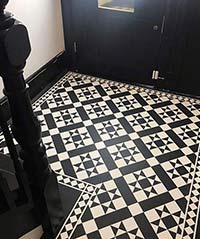 If you’re planning any home improvements there are some simple things to remember so your builders don’t start drifting onto other projects, or walk off the job altogether.
If you’re planning any home improvements there are some simple things to remember so your builders don’t start drifting onto other projects, or walk off the job altogether.
Before you start with a builder or new project, do take the time to get multiple quotes and go by recommendations if possible. Also, from the outset, once builders start taking out electrics and plumbing all sorts of hidden issues may come to light so having a reserve fund, a contingency, to cover these is vital.
If you’re planning an extension or loft conversion ask yourself: Will this spend add an equivalent value to my property? If it doesn’t, you may decide to proceed anyway, if you’re looking for an improved lifestyle rather than a return on money spent. Talk to your neighbours about the plans so they are aware and can be out or away when the noisiest or dirtiest parts of the job are underway. Let them know well in advance when water and electrics are likely to be switched off too.
Negotiating a special price for cash may seem smart but it does open up other risks and potential expenses, and isn’t recommended. Builders who are happy to take cash may well turn out to be cowboys, and if you’re the one trying to get a deal for cash, this might ring the alarm bells of a professional team.
Cash projects can save money by avoiding the taxman but it does put the project out of reach of the courts and regulators. In the event of a dispute the costs will dwarf any possible money saved. It’s better to be clear, up front and legitimate – setting the tone of your relationship as professional and stable. Pay on time the agreed amounts, check your invoices and be visibly managing the project.
Adding ‘extras’ to the project specification throughout the development will only put pressure on your team who will have scheduled the work and subsequent projects with some precision. It also blurs the clarity of the original plan and introduces new, potentially problematic or delaying obstacles.
Like extras, changes in the plans will probably incur extra costs, increasing pressure on the team and on your relationship too, so take more time in advance to consider your options and stick to them. As far as possible plan your materials: if they are coming from abroad, delivery delays can slow jobs down and create scheduling problems.
Being on the end of a telephone or sending instructions by text message will work most of the time but it’s a good idea to visit the site regularly, during daylight hours, so you can inspect the work thoroughly and discuss any issues with the team. Remember, it may be your home, your biggest investment, but no-one enjoys having their boss standing over them while they work. It suggests a lack of trust and confidence to your builder and it’s only a matter of time before you begin chipping in tips of your own, which are unlikely to be welcome.
An upbeat and motivated team will work efficiently and won’t be tempted to cut corners so make sure your team have access to toilet facilities, parking and skip space when and where needed, storage for tools, a radio and a kettle plus running water. Builders love their cups of tea, and if they can work happily and hydrated, they will work better.
Finally, have a good sense of humour with your builders, and if things go wrong (which they often do), try to be philosophical about it and work through the issues positively rather than launching into combat mode.
WILLIAMS LYNCH
63 Bermondsey Street
SE1 3XF
t: 020 7940 9940
e: info@williamslynch.co.uk
w: williamslynch.co.uk






























